‘Backstage Leadership: The Invisible Do the job of Hugely Efficient Leaders’, by Charles Galunic
The late organisational theorist James March, who occurred to instruct Charles Galunic at Stanford, used to say that management was a sensitive mixture of “poetry and plumbing”.
Galunic’s book does not neglect the poetry. He writes nicely about the duty of leaders to set powerful visions for their teams and promote them when in the glare of the general public spotlight. But his emphasis is on the prosaic plumbing and electrics. The “creating, keeping and integrating” of elementary procedures such as acquiring expertise, crafting culture, managing contradictions — “are the crucial, albeit backstage, in some cases invisible, do the job of business enterprise leaders”.
This is not a book about how to tackle the individual issues of taking care of out of a pandemic or as a result of a recession — it was written just before lockdown. There is, nevertheless, a great deal right here to enable really hard-pressed leaders in a disaster, richly illustrated with examples from business enterprise, activity and society.
For instance, Galunic indicates “scanning and sensemaking” — the process of capturing indicators and interpreting them — are vital techniques to uncertainty. He also revisits one more Marchian plan about taking care of the contradiction concerning “exploration” (which include innovation and invention) and “exploitation” (the infinite search for even further performance in existing regions of business enterprise). The objective? An “ambidextrous” management type that balances “conflicting and frequently paradoxical forces”.
‘Winning Now, Profitable Later on: How Businesses Can Gain in the Shorter Term When Investing in the Very long Term’, by David Cote
When David Cote became chief govt of Honeywell of the US in 2002, he took in excess of from Larry Bossidy, a tough-nut boss, who experienced written a business enterprise bestseller known as Execution: The Willpower of Obtaining Items Done. It is a surprise, then, to uncover from his exceptional and thorough account of how to operate an industrial business enterprise that the enterprise Cote inherited “needed to execute better”. Powering the “facade” was “a teach wreck . . . on the verge of failure”.
As for getting points accomplished, “just get it done” was what the finance division advised the business enterprise divisions when they ended up having difficulties to make demanding quarterly targets. It led to “untrammelled short-termism and a compromised strategic scheduling process”.
One lesson could be not to study textbooks written by ostensibly successful chief executives, but Cote’s could be the exception that proves that rule.
It is made up of its share of self-congratulation and instead far too a lot of nods to former colleagues. On the other hand, Honeywell experienced increased in price from $20bn to $120bn by the time Cote left in 2018, so he has acquired the suitable to boast a tiny. Profitable Now, Profitable Later on is also rescued by just sufficient emphasis on issues made and lessons learnt, and a big dose of hugely realistic information on management, which include how to experience out a recession.
Above all, Cote underlines how to try out to meet the central business enterprise obstacle of investing for the long run and nonetheless attaining short-phrase benefits, “accomplishing two seemingly conflicting points at the same time”.
‘Future-Proof Your Business’, by Tom Cheesewright
Even just before the world wide pandemic, firms ended up functioning in a world of regular modify and disruption. Tom Cheesewright writes that these disrupting tendencies can very last in excess of years, when there are other a lot quicker waves of modify layered in excess of these, enabled by globalisation and engineering.
Below the utilized futurist attracts on his experience of encouraging organisations to respond to innovation to give a survival manual for taking care of a successful business enterprise in an progressively complicated landscape.
Aimed at firms leaders, or those people who aspire to lead, Cheesewright states it is essential to “reshape your business enterprise for an age wherever adaptability to tomorrow’s obstacle is a much better predictor of accomplishment than currently being flawlessly optimised to today’s conditions”.
It is neatly split into three areas. To start with, he addresses how to structure a long run-proof business enterprise, a process that starts with a modify in attitude. The writer thinks that recent short-termism focuses on “immediate success” not “sustainable success”, so it is essential to reset the expectations of what management seems to be like so the target is on “adaptation”, instead than “optimisation”.
The next section guides leaders on “how to see the future”. Below Cheesewright supplies some basic strategies for assessing the in close proximity to and distant long run, which will enable leaders outline extra plainly a path for their business enterprise and enable establish potential obstacles.
The third segment seems to be at how firms can be greatest geared up for a “rapid response”. This focuses on final decision making: how to make the suitable selections extra swiftly but also understanding that the greatest selections are not often the swiftest. “Sometimes, slower, information-based mostly, strategic selections are expected. Understanding when to explain to the variance is crucial,” he writes.
Efficient final decision making is also about empowering individuals and devolving some final decision-making electricity to those people even further down the line.
The book is very thorough, to the place — and only one hundred fifty pages. And when the writer argues he cannot warranty that your business enterprise will be the a person to survive and thrive he can “help you to improve the odds dramatically”.
‘The Art of Getting Indispensable at Do the job: Gain Influence, Defeat Overcommitment and Get the Proper Items Done’, by Bruce Tulgan
This book is aimed at encouraging us all turn out to be a person of those people “go-to people” that each enterprise has — those people whose knowledge, performance and effortless way with colleagues is underpinned by company expertise in their place of do the job.
It will, due to the fact of its title, especially attractiveness to those people who already recognise themselves as “people pleasers” and whose MO at do the job is to achieve traction as a result of co-operation and appeal. But Tulgan’s effortless to digest information (itself charmingly offered) is beneficial to all people: “Navigating collaborative relationships [at do the job] is not going absent. And carrying out that career very, very nicely is how correct go-to individuals, in the actual world, gain actual affect, conquer in excess of determination and get the suitable points accomplished.”
Tulgan, who is an adviser to business enterprise leaders, is fantastic on recommendations for staying away from indicating indeed when you need to have to say no — staying away from in excess of determination, in other phrases, which is a enormous potential issue for the organisation’s go-to particular person. Simply because in a collaborative world, the crucial to affect is to do the job across teams, in tune with your boss but not limited to vertical final decision making. Operating horizontally or diagonally across other teams and projects requires technical expertise — and also individuals administration.
And the crucial to that? Not anticipating something again. There’s no quid professional quo for go-to individuals. “The correct go-to particular person does not retain a tally sheet -actual or imagined — of equivalent favours to be traded for inducing colleagues to just take particular selections or actions. If you think in actual affect, you provide some others due to the fact that’s what is suitable and that’s what produces the most price for everybody, in the short phrase and the extended phrase.”
In limited post-disaster workplaces, currently being anyone reliable and experienced is going to turn out to be evermore vital. Tulgan’s book is well timed, applicable and captivating.
‘Designing your Do the job Lifetime: How to Prosper and Modify and Uncover Happiness at Work’, by Bill Burnett and Dave Evans
We are all getting used to a new do the job-lifestyle stability in an period of coronavirus lockdown. For a lot of of us functioning from house, information on how to come across which means and joy is welcome when the day-to-day commute is a wander downstairs and the movie Groundhog Working day feels extra like a documentary.
Bill Burnett and Dave Evans target on the uncertainties of the modern day age and the need to have to changeover concerning roles, which was an issue just before the coronavirus disaster. However, the financial upheaval established by the pandemic will no question make this book an interesting proposition for a lot of individuals now thinking about a radical modify in way of living or just questioning what do the job is all about.
The biggest wrestle this book could possibly have is currently being picked from among the the a lot of titles already written about do the job-lifestyle stability. But the authors try out to enable their visitors in a very personable and realistic way: Evans and Burnett existing it as a adhere to up to their preceding book, Planning Your Lifetime, about finding intent in your do the job. “This book is about making it actual,” they compose.
One of these crucial realistic lessons is to be happy with what you have nowadays, not what you would like to have tomorrow. If that is not a beneficial lesson for lifestyle in coronavirus lockdown, what is?
‘You’re About to Make a Terrible Mistake: How Biases Distort Conclusion-Earning — and What You Can Do to Struggle Them’, by Olivier Sibony
We’ve all made undesirable selections, but does that make us a undesirable chief? Not according to Olivier Sibony, a professor and skilled in business enterprise strategy, whose book makes use of behavioural science to clarify why all individuals, even terrific leaders, are probably to do the improper point, frequently due to the fact of cognitive biases.
This is a book crammed with some intriguing, and scary, stories of final decision-making failures. It makes dry scientific ideas in administration theory, such as affirmation bias and heuristics, extra available. Some of these tales are nicely identified, such as online video rental enterprise Blockbuster’s failure to get Netflix, but they are however handy in this context.
The book is aimed at company leaders with sufficient self-awareness to realise that they make undesirable selections in section due to the fact of their very own biases, but it supplies reassurance and information to all of us with decisions to make. It is also an effortless study with actionable information.
It could not be fantastic for those people studying this book to achieve convenience from their failure, specified the superior cost of undesirable final decision making by enterprise heads. However, perception into why we could possibly have made improper selections in the previous is unquestionably worthwhile.
Perhaps the most comforting concept of this book is that accomplishment is under no circumstances down to people — the mistaken perception that propped up the cult of Steve Work at Apple iphone maker Apple. The flip side of this is that you are not a undesirable chief just due to the fact you make undesirable selections. And fantastic final decision makers do not act on your own: they are the architects of fantastic final decision procedures, followed by a staff.




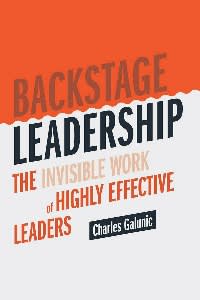
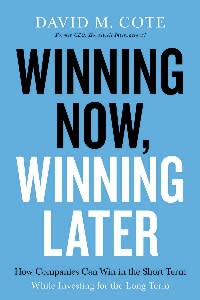
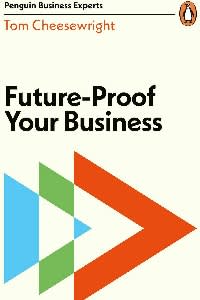
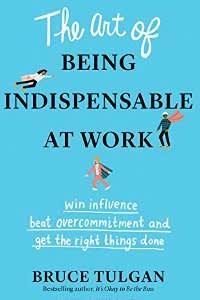
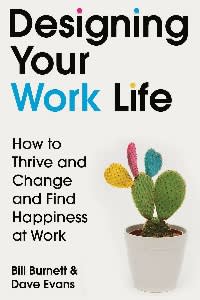
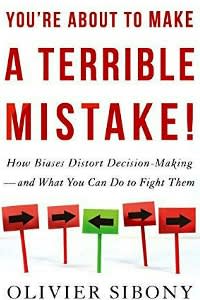
More Stories
Autoresponder – The Key to Running a Successful Online Business
The Upside to Trade Finance Advisory
New Business Loans Guide for Small Business Owners and Entrepreneurs